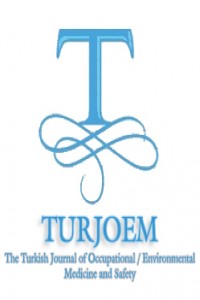Öz
Mycotoxins are
secondary metabolites that are produced by fungus types such as Aspergillus,
Fusarium, Penicilium and Alternaria spp. and cause mycotoxicosis as acute and
chronically in human and animals with ingestion to body. It is one of the most
important danger factors especially in agricultural food and feed that
threatens human and animal health. In this scope it is one of the problems that
has to be taken under control in terms of providing food security and
protection of human health. Some studies show that ingestion of fungal
components to body causes various problems from acute deaths to chronical
diseases as a result of negative exposure of animal health and degradation of
resistence towards pathogens. Some studies also show that mycotoxins in human
cause vomitting, diarrhea and other gastrointestinal problems as well as having
carcinogenic, mutagenic, teratogenic and neurotoxic potential. Mycotoxins that
can be seen in agricultural products grown in our country such as hazelnut,
peanut, pistachio, fig, raisin and red pepper grown can pose a danger in terms
of society health and economy of country. The most important mycotoxins
produced by Fusarium type molds that can grow in many agricultural products as
corn and cereals being in the first place are Trichothecenes (Deoxynivalenol,
Nivalenol, T-2 and HT-2 Toxins), Zearalenone, Fumonisins and Moniliformin and
also in this review Fusarium toxins that can grow in agricultural products and their
effects on health will be examined with related literature.
Anahtar Kelimeler
THE PRESENCE OF FUSARIUM MYCOTOXINS IN AGRICULTURAL PRODUCTS AND ITS EFFECTS ON HUMAN HEALTH
Kaynakça
- Funda ZEYTUN, Hilal YILDIZ, Yeşim DAŞDEMİR
- Nevşehir Hacı Bektaş Veli University, Turkey
Öz
Kaynakça
- Funda ZEYTUN, Hilal YILDIZ, Yeşim DAŞDEMİR
- Nevşehir Hacı Bektaş Veli University, Turkey
Ayrıntılar
| Bölüm | Articles |
|---|---|
| Yazarlar | |
| Yayımlanma Tarihi | 16 Şubat 2017 |
| Yayımlandığı Sayı | Yıl 2017 Cilt: Volume 2 Sayı: İssue 1 (1) - 2.İnternational Congress Of Forensic Toxicology |


